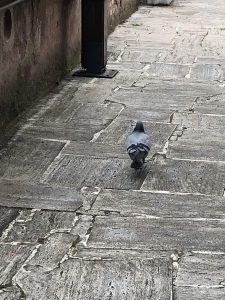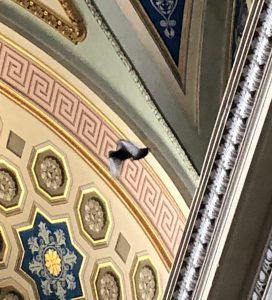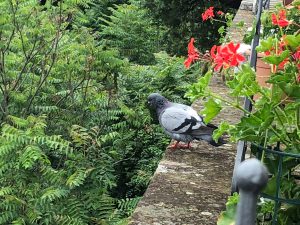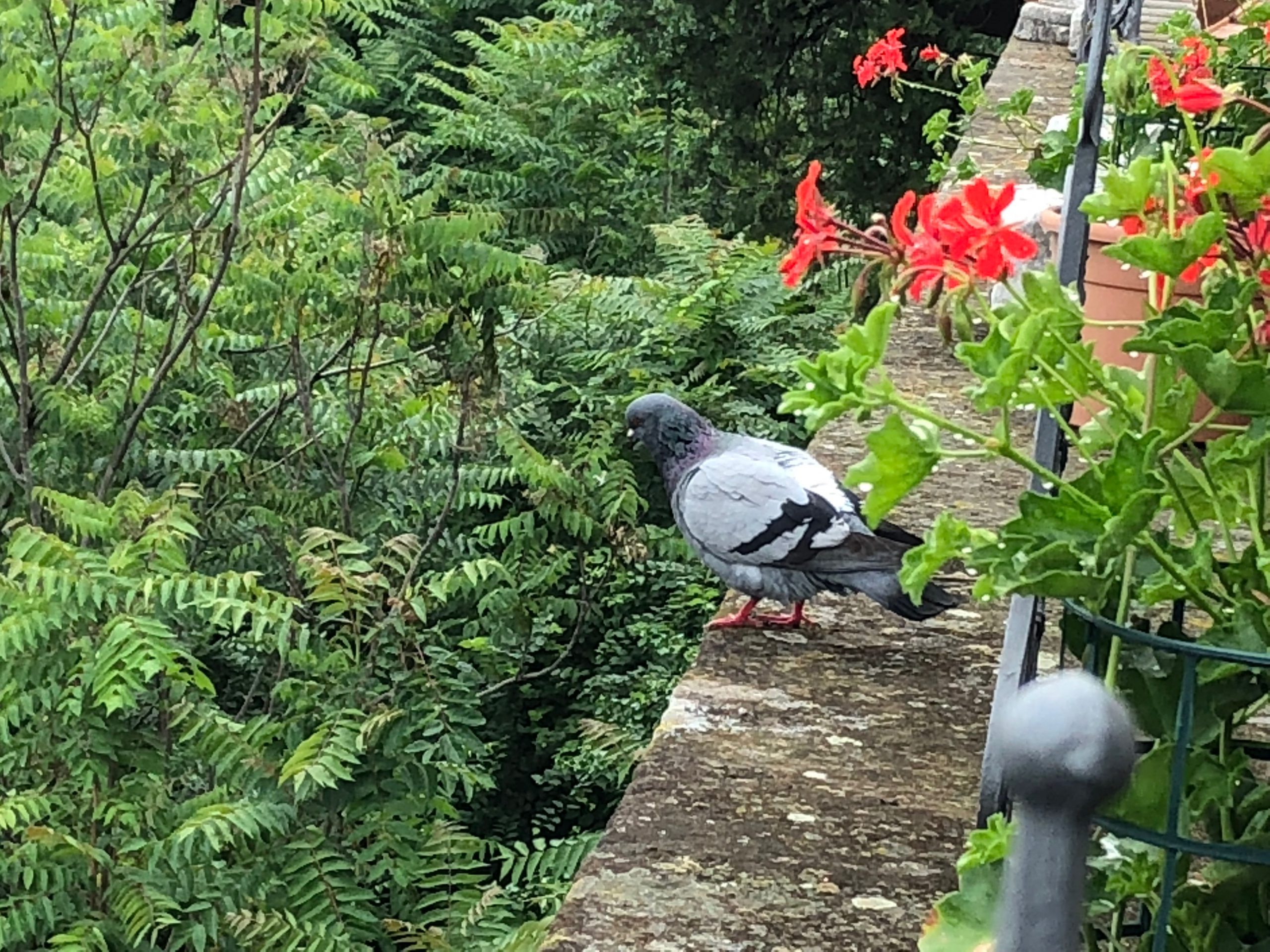
Pigeon processing at the basilica.
Blessed are the poor in spirit, for theirs is the kingdom of heaven (Matthew 5:3).
To music, I offer two modest gifts. First, I keep my mouth shut, hands still, and ears open to simply listen. For I have neither talent nor training.
Second, I love and take care of my wife, Wanda Cantrell, who blesses music with her voice, discerning ear, and the smooth, practiced movement of her hands on the keyboard and of her feet on the pedals of piano and organ. Moreover, she teaches and accompanies young musicians with sensitivity, insight, and loving-kindness.
As the accompanist for Reinhardt University’s choir, she got a wonderful assignment: travel with them on a performing tour through Italy. She invited me along as they sang, not only in St. Peter’s Basilica and other ones in Rome, Tuscany, Florence, and Venice, but in flash-mob performances of Viadana’s “Exsultate Justi” in gift shops, the Pantheon, piazzas, restaurants, and side streets, drawing crowds waving their smart phones to record the song of angels. I cannot discuss it with the intelligence of my fellow travelers, but it was a blast.
This meditation came to me on our first performing stop after our first day of travel and touring. At the Basilica of St. Bonifacio e Allesio in Rome, their brilliant teacher and conductor, Martha Shaw, treated them to a workshop with Fabio Avolio, a Vatican organist. As their angelic voices soared, I meandered about, taking in my first Italian basilica, the intricate artwork and architecture.
Yet, something seemed missing. Strangely, I found myself asking, perhaps praying, “Where is the Holy Spirit?”
Then Dr. Dana Hall, a Reinhardt faculty member traveling with us, pointed to a pigeon walking through the front door. The bird processed as if owning the place, meandered among empty chairs, paused before a painting of souls ascending, and took wing.

Pigeon flying in the Basilica.
This seemingly out-of-place, unexpected visitor answered my question. There–there is one strutting in as the Holy Spirit usually does, out-of-place, wild, even common, embarrassing to behold in the grandeur of this sacred structure fashioned and built by the most skilled human hands.
Yet, here was one not made by human hands whose coloring, flight, and speeding heart no human mind can contrive, no human mind construct. That is what the Holy Spirit does: She visits at unexpected times and embarrasses us. Then, if we pause and restrain our reflex to shoo her away, she lifts up our hearts, bidding us behold the morning light into which she flies as if she owns it.
Of course, I improvise. We think of the dove as a symbol of the Holy Spirit, not cousin pigeon. But the Holy Spirit never stays in the places we assign, never stays confined in our categories.
Yes, it was only a pigeon. At universities, perhaps one in Rome itself, ornithologists with pigeon research programs can tell us so much about them that calling this errant one a sign of the Holy Spirit seems embarrassing. But cleanse your world of such signs at your peril. For words and facts collapse under the weight of reality. Truth overflows cups of fact and floods into mystery.
Truth blows like the wind, another symbol of the Holy Spirit. You can’t snap it’s picture in still frame. You can only see it in its effects like the fluttering of flags, the swaying of trees, the suffering love of saints like those depicted in sculpture and painting at St. Bonifacio e Allesio Church.
It is only wind, a complex dance of atoms in the air, the cold rushing to dissolve in the warm. It is not itself the Holy Spirit any more than the wandering pigeon or white dove. But deny that it points beyond itself and risk your grasp on truth that you pride yourself in holding.
What is a silent, songless man to do now? Pray, of course. I leave behind the soaring voices and wander into a small courtyard. Sitting on a bench with the sounds of traffic below and St. Peter’s Basilica in the distance, I collect myself. But just before my silent prayer, I glance to my right to see the pigeon perched on the ledge above the traffic, gazing with me into sacred space.

Pigeon overlooking Rome with me before I pray.


0 Comments